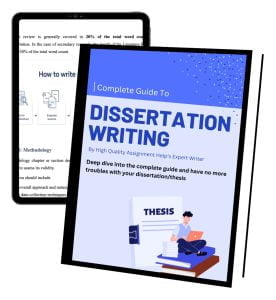The foundation of any scholarly endeavor lies in the extensive exploration and analysis of existing literature, and the field of legal scholarship is no exception. A thorough literature review is essential to legal research, enabling scholars to build upon existing knowledge, identify research gaps, and establish credibility in their work. This article will explore the critical importance of conducting a comprehensive literature review for legal scholarship with the help of literature review writing help and delve into the process involved.
Before embarking on any research project, it is vital to understand the existing body of knowledge related to the subject matter. A literature review provides a comprehensive overview of the relevant scholarly works and legal opinions, giving researchers a solid foundation to build their contributions.
Importance of Literature Review in Legal Scholarship
- Understanding Existing Research
A Literature Review for Legal Scholarship allows to understand previous research conducted in their field comprehensively. By examining existing theories, frameworks, and methodologies, scholars can identify the strengths and weaknesses of prior work, providing a basis for further investigation.
- Identifying Research Gaps
Through a literature review, researchers can identify gaps in the existing body of knowledge. These gaps represent areas where further research is needed, enabling scholars to contribute to the development of legal scholarship by addressing unanswered questions or exploring new perspectives.
- Establishing Credibility
Conducting a thorough literature review helps establish Credibility for legal scholars. Researchers can showcase their expertise and position their work within the broader scholarly discourse by demonstrating a deep understanding of the relevant literature. This enhances the Credibility and validity of their research findings.
Process of Conducting a Literature Review
Researchers should follow a systematic process to conduct a comprehensive literature review in legal scholarship. The following steps outline the key components of this process:
- Defining Research Questions
Before diving into the literature, clearly defining the research questions or objectives is crucial. This ensures that the review remains focused and guides the researcher in selecting relevant sources.
- Search Strategy
A well-defined search strategy is essential for locating relevant scholarly materials. Researchers should identify appropriate databases, search terms, and filters to retrieve the most relevant and reliable sources.
- Evaluating and Analyzing Sources
Once relevant sources have been gathered, evaluating and analyzing them critically is essential. Scholars should assess each source’s quality, Credibility, and relevance to determine its value in supporting their research objectives.
- Synthesizing Information
Synthesizing the information gathered from various sources is crucial in conducting a literature review. Researchers should organize and categorize the findings, identifying common themes, conflicting viewpoints, and emerging trends. This synthesis provides the basis for drawing meaningful conclusions.
Also Read:How to Write an Effective Literature Review for Your Law Research Paper
Enhancing the Quality of Legal Scholarship
A thorough Literature Review for Legal Scholarship plays a significant role in enhancing the quality of legal scholarship. Here are a few ways in which it contributes:
- Providing Context
A literature review helps situate a researcher’s work within the broader legal landscape. By considering the historical, theoretical, and empirical Context, scholars can provide a comprehensive foundation for their arguments and highlight the relevance and significance of their research.
- Strengthening Arguments
Legal scholars can strengthen their arguments and claims by referencing and analyzing existing literature. Citing authoritative sources and acknowledging alternative viewpoints demonstrates a rigorous approach and enhances the persuasiveness of their work.
- Influencing Policy and Practice
High-quality legal scholarship can influence policy decisions and legal practice. By conducting a thorough literature review, researchers can identify gaps in the law, propose innovative solutions, and contribute to developing policies and procedures that have a real-world impact.
Challenges in Conducting a Literature Review
While conducting a literature review is critical, it has its challenges. Legal scholars may encounter the following hurdles:
- Access to Relevant Materials
Accessing relevant legal materials can be challenging due to limited availability, copyright restrictions, or restricted access to specific databases. Researchers must navigate these barriers to ensure they have access to the most current and comprehensive literature.
- Managing Vast Amounts of Information
The vast amount of legal literature available can be overwhelming. Researchers must develop effective strategies for managing and organizing the information gathered during the review process to avoid getting lost in a sea of citations.
- Avoiding Bias
Objective analysis is crucial in legal scholarship. Researchers must be mindful of their biases and maintain neutrality throughout the literature review process. By critically evaluating sources and considering diverse perspectives, scholars can mitigate the risk of Bias in their work.
Still worried about help me write a literature review? Don’t worry Assignment Unlocked will help you in conducting a thorough literature review writing help which is a critical component of legal scholarship.
Conclusion
By understanding existing research, identifying gaps, and establishing Credibility, legal scholars can contribute to advancing knowledge in their field. Despite the challenges involved, the benefits of a comprehensive literature review far outweigh the difficulties, ultimately leading to more robust and impactful legal scholarship.
Hiring a writer through assignment unlocked can save students a significant amount of time. Writing assignments can be time-consuming, but with professional help, students can focus on other academic or personal responsibilities.






